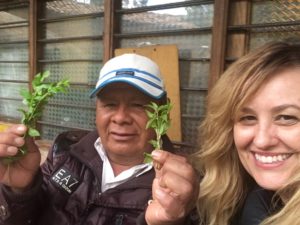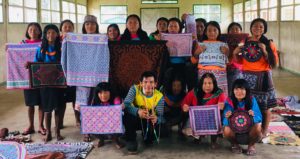Airmid Institute is funded through memberships, personal grants, private funding, and personal donations.
All contributions help to conserve medicinal and aromatic plants (MAPs) and their fragile habitats and ecosystems, and to support the preservation of traditional ecological knowledge, and the traditional use of MAPs in Indigenous communities.
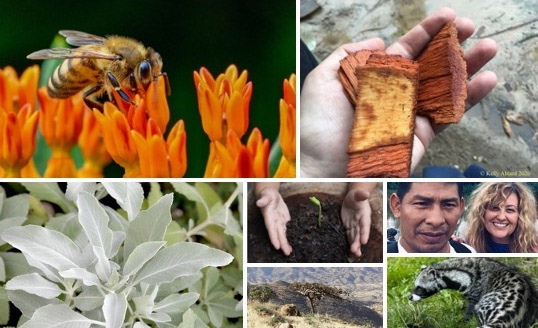
Further, donations are used to develop children’s educational programs worldwide focused on the sustainability of medicinal and aromatic plants, biodiversity, climate change, and gardening. Funds are also used to develop projects in collaboration with our global Ambassadors, and to develop projects with Indigenous communities. To see an example of how your donated dollars are used for our work, below is a breakdown of Phase 1, 2, and 3 of The Toucan Project.
We are also extremely grateful for other items donated such as essential oils, carrier oils, school supplies, and translation services. If you’d like to learn more about how you can donate, please contact us!
Donate Online
Airmid Institute is a registered 501(c)(3) non-profit organization: EIN 84-2585041

Phase 1
Novel research was done throughout northern, central, and southern Peru in 2015 to identify and understand the use of aromatic plant medicine as a form of traditional medicine from the viewpoint of Aromatherapy as practiced in North America, and to assess the conservation status of Peruvian aromatic medicinal plants.
Consequently, 63 aromatic medicinal plants were identified, along with the conditions they are used to treat, as well as their common extraction and application methods. Factors impacting the abundance of aromatic medicinal plants and their conservation statuses were also revealed. The majority of informants who use aromatic plant medicine do so sustainably; they were aware and concerned that their medicine is disappearing as a result of deforestation, overharvesting, and climate change. Two plants of particular concern were rosewood (Aniba rosaeodora) and muna (Minthostachys spp.).
Although Peruvians are using aromatic plants in their daily lives, they expressed a desire to learn more about aromatherapy and its uses. Consequently, Dr. Ablard’s goal was to provide educational instruction on the chemistry and therapeutic benefits of essential oils, as well as cost-effective ways of extraction with higher yields of essential oil. The latter is critical considering that their aromatic medicinal plants are fewer in number and fast disappearing because of climate change, overharvesting, and deforestation.
Peruvians have taken steps to help conserve and protect their aromatic plant medicine for its use in local healing by future generations yet doing so can be costly and require resources difficult to obtain. Reforestation is one strategy being implemented to help conserve their valued plants.
We can also help by establishing sustainable methods of growth and harvesting of essential-oil bearing plants in Peru, providing a market for the oils which will not only help conserve plants, but also help communities become economically strong, and collaborating with Peruvian universities to demonstrate scientifically the therapeutic value of their aromatic plant medicine.
Further details on Phase 1: ‘Exploring Aromatherapy as a Form of Traditional Aromatic Plant Medicine in Peru’ by Dr. Kelly Ablard
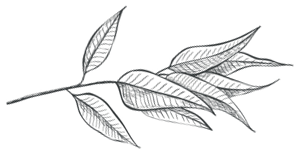
Phase 2
As a result of Phase 1, the objectives of Phase 2 in 2017 were to locate and identify wild rosewood (A. rosaeodora), which is classified as endangered by the IUCN, explore ways with the Shipibo to cultivate a sustainable source of rosewood for seed saving, distillation, and economic gain, to deliver essential oils to Shipibo and Quechua communities, and to provide instruction and educational materials to the healers and leaders of these communities on their therapeutic benefits and applications.
Consequently, semi-mature to mature wild rosewood trees were located (Figure 1). Said plant material was physically confirmed by Juan Ruiz (Universidad Nacional de la Amazonia Peruana) and was further confirmed by chemical analysis of its essential oil performed by Dr. Rosario Rojas (Universidad Peruana Cayetano Heredia). Agreements and business proposals were initiated to secure government land, and Shipibo land to grow A. rosaeodora trees alongside other native essential oil-bearing plants. Essential oils were donated to Shipibo and Quechua communities and were used to support their healing, while training and educational materials on the therapeutic benefits and applications of the essential oils were given to heads of Shipibo and Quechua villages, plant-medicine healers, schools, and communities (Figure 2). The medicine and sharing of knowledge are helping to support the healing of 1000+ people (Figure 3).
As a result of Phase 1, the objectives of Phase 2 in 2017 were to locate and identify wild rosewood (A. rosaeodora), which is classified as endangered by the IUCN, explore ways with the Shipibo to cultivate a sustainable source of rosewood for seed saving, distillation, and economic gain, to deliver essential oils to Shipibo and Quechua communities, and to provide instruction and educational materials to the healers and leaders of these communities on their therapeutic benefits and applications.
Consequently, semi-mature to mature wild rosewood trees were located (Figure 1). Said plant material was physically confirmed by Juan Ruiz (Universidad Nacional de la Amazonia Peruana) and was further confirmed by chemical analysis of its essential oil performed by Dr. Rosario Rojas (Universidad Peruana Cayetano Heredia). Agreements and business proposals were initiated to secure government land, and Shipibo land to grow A. rosaeodora trees alongside other native essential oil-bearing plants. Essential oils were donated to Shipibo and Quechua communities and were used to support their healing, while training and educational materials on the therapeutic benefits and applications of the essential oils were given to heads of Shipibo and Quechua villages, plant-medicine healers, schools, and communities (Figure 2). The medicine and sharing of knowledge are helping to support the healing of 1000+ people (Figure 3).
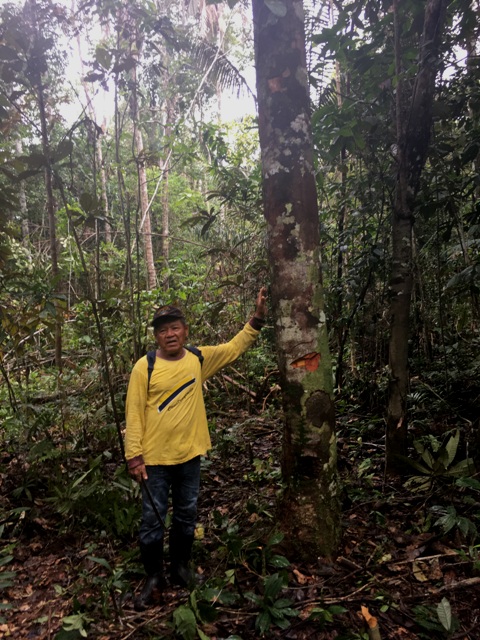
Figure 1. Rosewood located deep in the Amazon of central Peru © Kelly Ablard
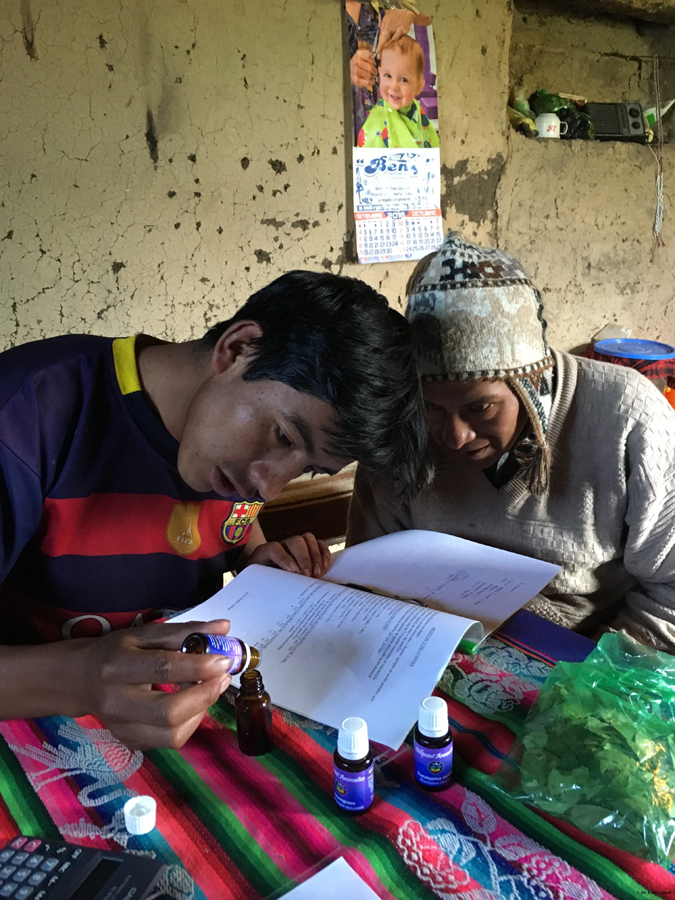
Figure 2. Aromatherapy training with Quechua. Andes, Peru © Kelly Ablard
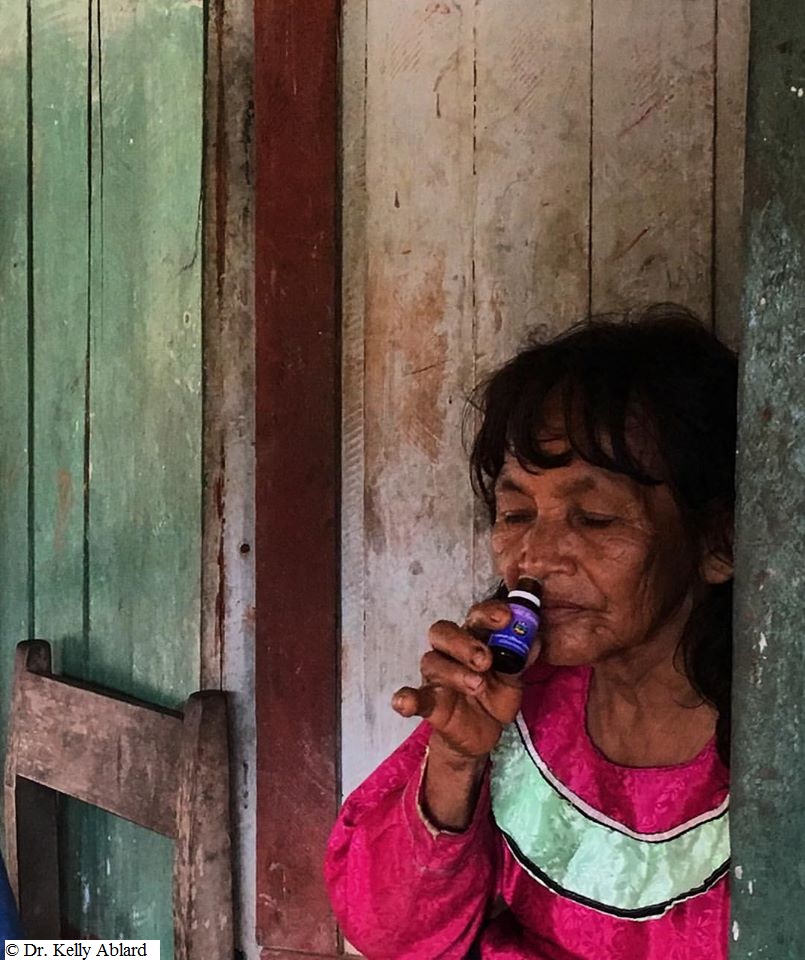
Figure 3. Quechua woman inhaling lemon essential oil. central Peru © Kelly Ablard
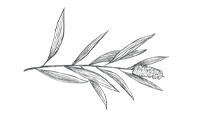
Phase 3
The objectives of Phase 3 were to establish legal land and business agreements, gather information and put into effect a plan to cultivate sustainably-managed rosewood in order to acquire a CITES permit for legal exportation of rosewood (A. rosaeodora) essential oil, plant rosewood seeds, deliver essential oils to Shipibo and Quechua communities, continue to provide instruction and educational materials to the healers and leaders of these communities, survey population numbers of Minthostachys spp.*(Figure 4), collect Minthostachys spp. for genetic analysis and specimen vouchers, demonstrate sustainable-harvest methods, ensure a high-quality and ethical source of Minthostachys essential oil, collect A. rosaeodora oil samples for further chemical analysis, and to provide Shipibo children with shoes and school supplies.
Consequently, Dr. Ablard and Shipibo communities and their leaders have secured land for the sustainable cultivation of rosewood, and other Peruvian essential and carrier oil-bearing plants. Currently there are over 1000 rosewood trees thriving and being protected by Shipibo communities. Dr. Ablard has continued to work with colleagues and Peruvian Government officials to secure a CITES; in the interim, she is preparing a report (inclusive of a population density assessment) on muna for submission to the IUCN. Additional samples of A. rosaeodora will be undergoing chemical analysis, and Shipibo children were provided with school supplies and shoes.
*Muna: Understanding the environmental chemistry of Minthostachys spp. is just one area that must be further explored in order to deepen our understanding and preservation of this genus, which we know so very little about. Building upon and reassessing our current modicum of knowledge through clinical research, systematic taxonomic classification, conservation genetics, population density assessments, and sustainable management of these plants are of equal importance. Although no Minthostachys species are classified as threatened, it is possible that some species may well be. For example, Peruvian Minthostachys spp. are pulled out from the roots with little sign of regeneration; and in Argentina, juvenile M. verticillata is harvested before flowering. The fact that these two countries are the primary producers of Minthostachys essential oil on a commercial scale is cause for concern.
Collecting data on endemic population densities is critical to establish a baseline category for the conservation status of these plants. Also critical is providing education about the methods of sustainable harvesting and cultivation methods.

Phase 4
Dr. Ablard plans to return to Peru in 2022 with the following objectives: Prepare the groundwork to conduct an assessment on wild and mature threatened Peruvian rosewood (A. rosaeodora) trees, continue the work of creating a legal market for global exportation of pure, and sustainably managed Peruvian steam-distilled A. rosaeodora essential oil, and to continue educational work in collaboration with Shipibo colleagues focused on preservation of biodiversity, regeneration, reforestation, and climate change. Further, preservation of Shipibo culture will be explored by examining the development of a piripiri farm, and a market for Shipibo women to sell their embroidery and jewelry. (Figure 5).

Future Projects
A study of the uses of medicinal and aromatic plants in traditional medicine within First Nation communities in British Columbia.

Thank You!
Thank you to our amazing past supporters Gary Ablard Sr., Gary Ablard Jr., Devin Ablard, Sue Adlam, Patris Aghakian, Alliance of International Aromatherapists, Joanne Arnold, Jose Felix Arevalo, Robert Arndt, Crystal Baldwin, Paula Begel, Jackie Bell, Robert Berryman, Leah Barabasz, Jim Barry, Kristina Bauer, Brian Beacham, Hana Viola Belikova, Hannah Bottomley, Judy Boyd, The Bozic Family, Cynthia Brownley, RJ Buckle, Andrea Butje, Lora Carbo Cantele, Fiona Carr, Emma Charlton, Jennifer Eden Clark and Family, Kristin Clark, Marge Clark, Pamela Clark, Pam Conrad, Melissa Cook, Peter Cramer, Ivis Cruz, Cooper Dael, Jacqueline Dale, Annette Davis and Family, Tina DeBroux, Nicole Degagne, Niko Dorje, Robert Dowdell, Allana Downie, Diane Dunn, Essence of Thyme College of Holistic Studies, Flying Dog (Marcel), Angie Ehmke, Dorothy Fontaine, Julie Foster, Liz Fulcher, Jeffrey Boyd Garrison, Petra Gilbert, Omar Gomez, Katherine Grames, Donna Greenwood, Shannon Grover, Elizabeth Haengel, Zena Hallam, Aaron Heriford, Julieta Herrera, Bernard Houston, Laura Hoy, Dr. Malte Hozzel and Oshadhi, Victor Hugo Yana Huaman, Jairo Ibreno, IDEA WILD, Anita James, Zaid Jumean, Joan Keith, Noreen Keith, Madeleine and Kees Kerkhof, Laura Kline, Janet Latter, Steve Laut, Alison Legge & Cory, Anne Liljedahl, Tracey Lewindon, Rhiannon Lewis, Iris Mori Lomas (Edie), Kate (Moss) Lila Rodriguez Lomas, Louisa and son, Joel Lomas Maldonado, Obed Loma Maldonado, Panna Majithia, Dr. Charles Mango, Lucinda Marrs, Michele Mazur, Joanna Miller, Onour Moeri, Gabriel Mojay, Mary Monterio, Antonio Montero Pisco, Virginia Mori Sinuiri, Casey Mulcaster, Joy Musacchio, National Association for Holistic Aromatherapy, Dr. Anna Nekaris, Candi Noe, Pey Oh, Linda Passmore (madre), Kirti Patel, Pedro, Walter Pena, Didier Pesoni, Rene Picard, Jennifer Pressimone, Poncho, Satyen Raja, Raul, Javier Regueiro, Suzanne Rickards Raja, Star Riparetti, Wendy Robbins, Dr. Rosario Rojas Duran, Dr. Juan Ruiz, Jackie Schuknecht, Seed Tree, Victor Serrubio, Geoff Smith, Lori Snyder, Martina Steege, John Steele, Stillpoint Aromatics, Adam Stone, Colleen Thompson, Robert Tisserand, The Tisserand Institute, Universidad Nacional de la Amazonia Peruana, Universidad Peruana Cayetano Heredia, Lila Maldonado Urquia, Leah Ursic, Robin van Loon, Karla Vasquez, Veronika Vojtova, Graham Webber, The Whitridge Family, Aimee Williams, Raoul ‘Wolf Man’, Charlene Wood, Nilo Zambrano, and Joan Zigulich.


